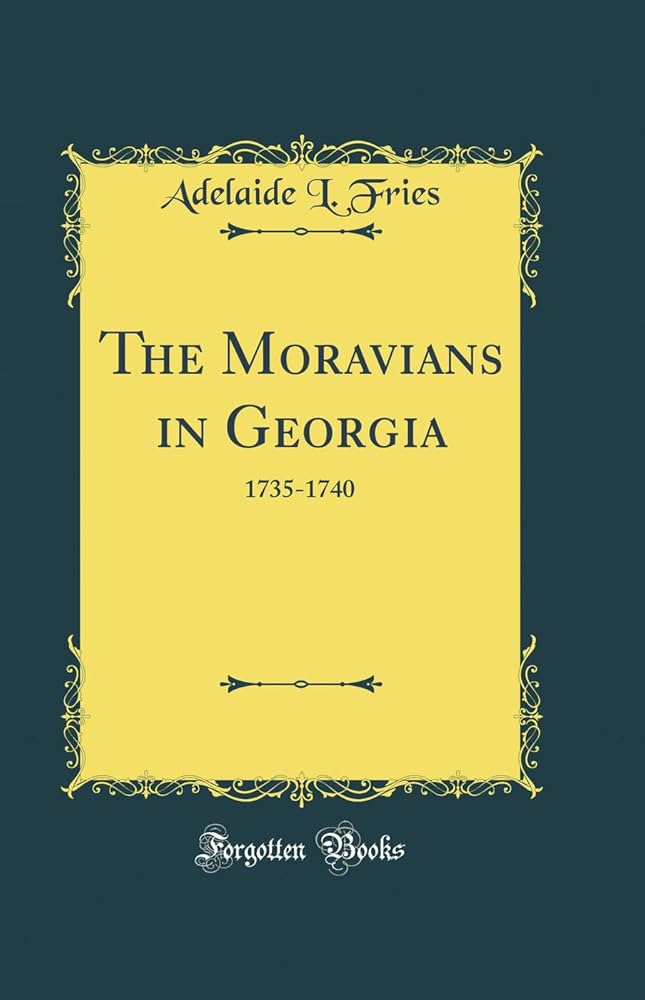Chapter VI — Disintegration
byChapter VI — Disintegration unfolds the final moments of the Moravian mission in Georgia, closing a chapter that had started with profound optimism. While the settlers had arrived with high aspirations of building a peaceful, faith-centered community, the reality of political pressure, health crises, and ideological clashes proved too great a burden. Their desire to maintain religious neutrality during a time of mounting colonial conflict created tensions with authorities and other settlers. They were misunderstood, accused of disloyalty, and faced repeated challenges that hindered their progress. Rather than compromise their spiritual values, the Moravians chose to leave Georgia, not in defeat, but in pursuit of a more hospitable environment for their beliefs. Their quiet withdrawal marked the end of a vision—but not the end of their mission.
The departure of the Moravians was not a retreat from their core principles, but a strategic redirection. Many of them moved north to Pennsylvania, where Moravian communities had already gained a stronger foothold. In these new settings, they continued their work among both European settlers and Native American tribes. Their schools, mission houses, and organized settlements reflected the same emphasis on humility, education, and nonviolence that they had brought to Georgia. The lessons learned from their southern venture informed how they would operate in future colonies, adjusting to cultural and governmental demands while remaining true to their beliefs. Though their time in Georgia was brief, it served as a refining moment that clarified the conditions under which they could most effectively serve. Their resilience turned a failed settlement into a blueprint for sustainable ministry.
As the Georgia chapter closed, figures like August Spangenberg and Bishop John Gambold continued to shape Moravian outreach in broader regions. Gambold’s death and chosen epitaph from Corinthians reflected the humility that defined the movement: their strength came not from themselves but from divine sufficiency. This guiding principle remained central to all their missions thereafter. Although their property in Georgia eventually passed into other hands, their brief presence had introduced a model of communal living that emphasized equality, peaceful cooperation, and spiritual depth. The Moravians believed that even the smallest efforts could echo through generations if rooted in sincere devotion and purpose. This mindset encouraged them to press forward, planting seeds in more fertile ground.
Their legacy in Georgia, though often overlooked in larger historical narratives, stands as a quiet testament to faith under pressure. Rather than dominate or assimilate by force, they chose integrity over compromise, often at great personal cost. Their approach contrasted sharply with other colonial powers who prioritized expansion and control. This difference—between peaceful ministry and territorial conquest—makes their experience in Georgia uniquely compelling. Even without lasting settlements, they contributed to the religious diversity and cultural experimentation that defined early colonial America. Their willingness to disband rather than distort their faith demonstrates a rare kind of courage that many larger, more successful ventures lacked.
It is worth noting that the Moravians’ efforts were not in vain. The educational practices and community structures they introduced found new life in other colonies, influencing American Protestant traditions in subtle but lasting ways. Their hymns, liturgies, and communal decision-making processes would go on to inspire future congregational models. The departure from Georgia became part of a larger pattern of adaptation and survival that ultimately allowed the Moravian Church to endure and evolve. Their story is a reminder that success cannot always be measured by permanence, but by faithfulness to principle and the quiet impact on those they served. The marks they left on hearts, even in a brief span of time, outlasted the structures they abandoned.
As the mission disintegrated in form, it expanded in spirit. New possibilities opened elsewhere, proving that sometimes letting go of one field allows the harvest to flourish in another. The Moravians, though scattered from Georgia, remained unified in purpose. They had faced hardship, suspicion, and loss, yet emerged more certain of their calling and better equipped for future challenges. Their presence in Georgia may have faded from maps, but not from the unfolding story of faith communities in America. By walking away with dignity and grace, they preserved what mattered most: a vision of faith that could endure beyond geography or politics.

